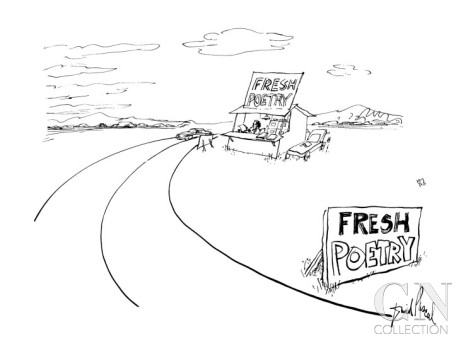FWP:
SETS == POETRY
COMMERCE: {3,3}
SCRIPT EFFECTS: {33,7}
WRITING: {7,3}
Such an astonishing verse-- it looks so straightforward at first, and then opens up beyond all expectation. In the first line, we don't know for whose amusement the verses are now meant-- the poet's? the patron's? the general public's?
And as Baqir's reading suggests, the judgment that the verses are only for amusement could also be taken not as one that the poet himself is making, but as one that the poet is quoting sarcastically-- one that he resents and doesn't share. On this reading, the time when he heard someone making this observation was the time when the insight in the second line 'became revealed' to him.
And the word 'now' expands these temporal possibilities. Is 'now' part of people's reaction to the poet's work (they used to take it seriously, but now they consider it a joke)? Or is it part of the poet's response (he used to aspire to profit from his work, but now composes only for his own pleasure)?
In the second line, we see the elegant use that's been made of the various senses of ʿarẓ :
=There's no profit in 'presenting' one's art, in general
(to the public? to anybody?).
=There's no profit in 'humbly presenting' one's art or in any 'petitioning'
(to a powerful patron) about one's art.
=There's no profit in creating a 'breadth' or 'scope' in one's art.
The third meaning, of 'breadth', resonates perfectly with the use of khulā -- literally, 'opened' or 'opened out'-- to mean, idiomatically, 'it was revealed, it became clear'. (On the idiomatic sense of ḳhāk nahīñ , see {114,1}.)
And then, if we emphasize the second meaning, the purpose of making one's art a 'petition' or offering (to a patron) is of course to obtain 'profit' [fāʾidah] from his acceptance; this can mean any kind of benefit, but has at its heart a commercial sense (just as is true of 'profit' in English). The opposite of a financial 'profit' is an 'expenditure' or 'loss'-- which is a central meaning of ṣarf (see the definition above). And although the primary sense here (as Arshi carefully indicates) is ṣirf with a zer rather than ṣarf with a zabar , the wordplay is, in such a context, impossible to miss. If we can't miss it, how could Ghalib have missed it? And if he didn't want us to experience it as part of the verse, he could easily have altered the line.
Finally, what's the tone of this verse? Bitter? Rueful?
Sarcastic? Amused? Resigned? Indifferent and dismissive? Neutral and factual?
Nothing at all in the verse tells us. We have to choose a tone every time
we read it, even in our own minds; and each tone reinvents the force and pleasure
of the verse.

Nazm:
== Nazm page 123